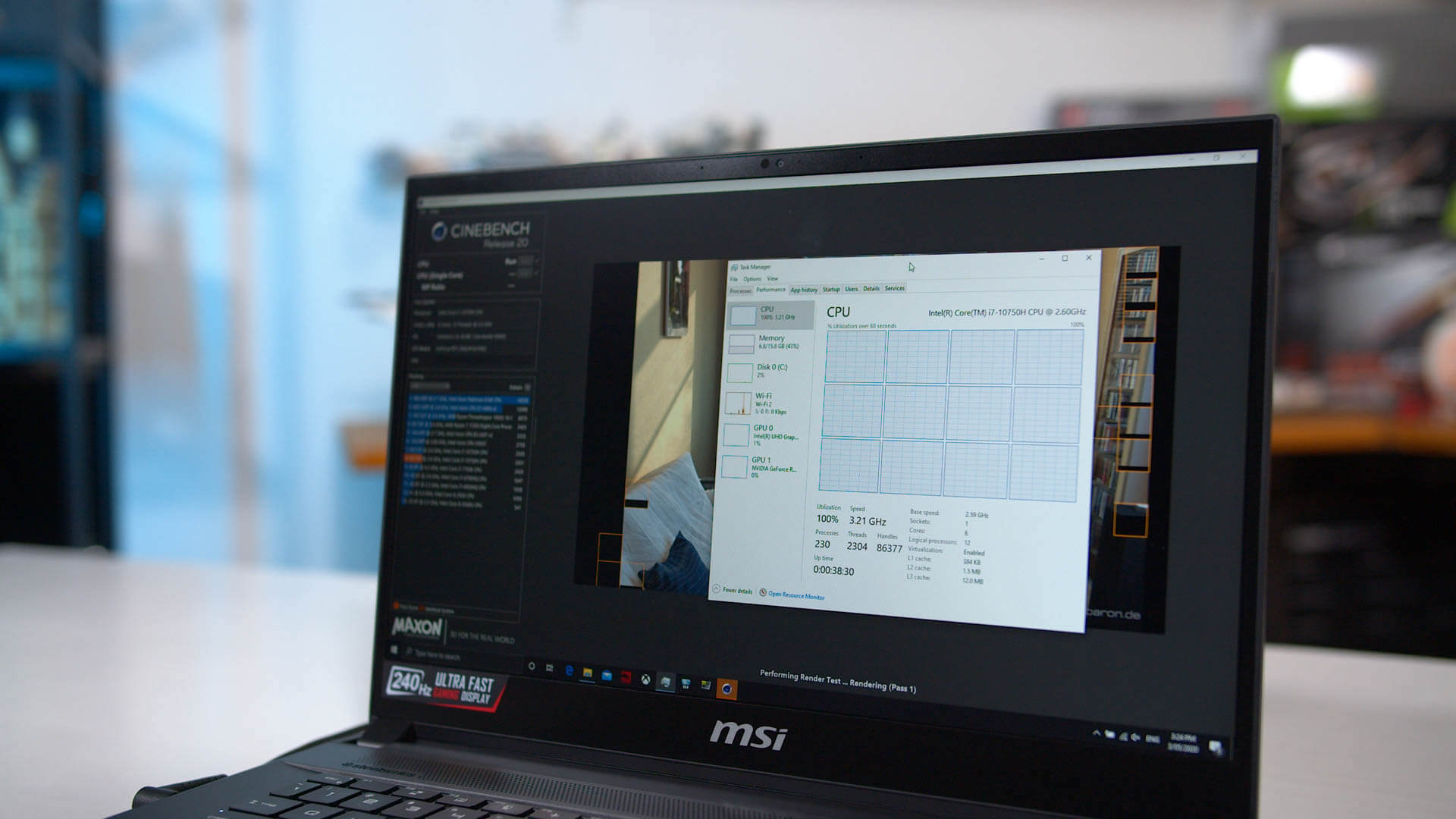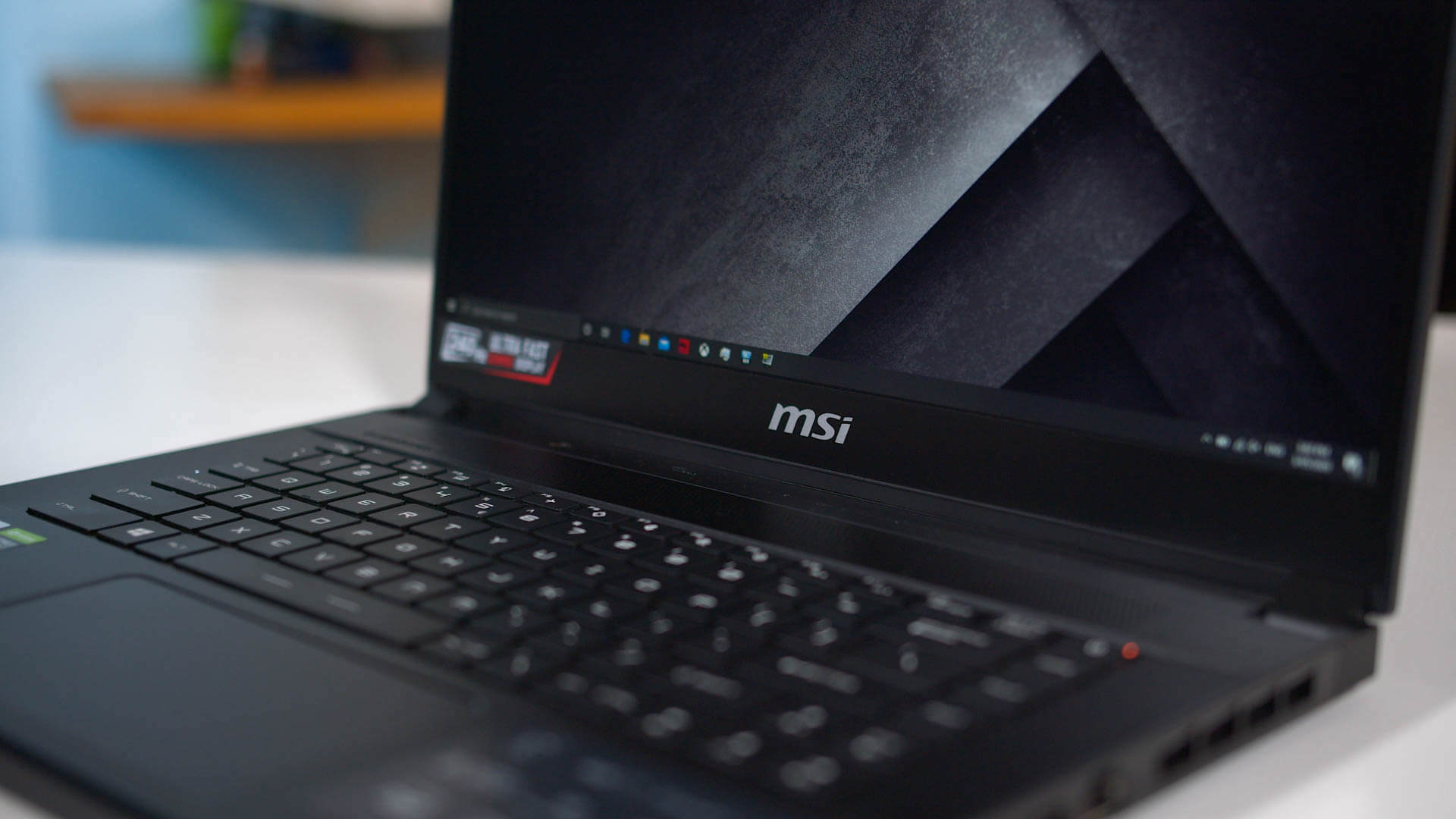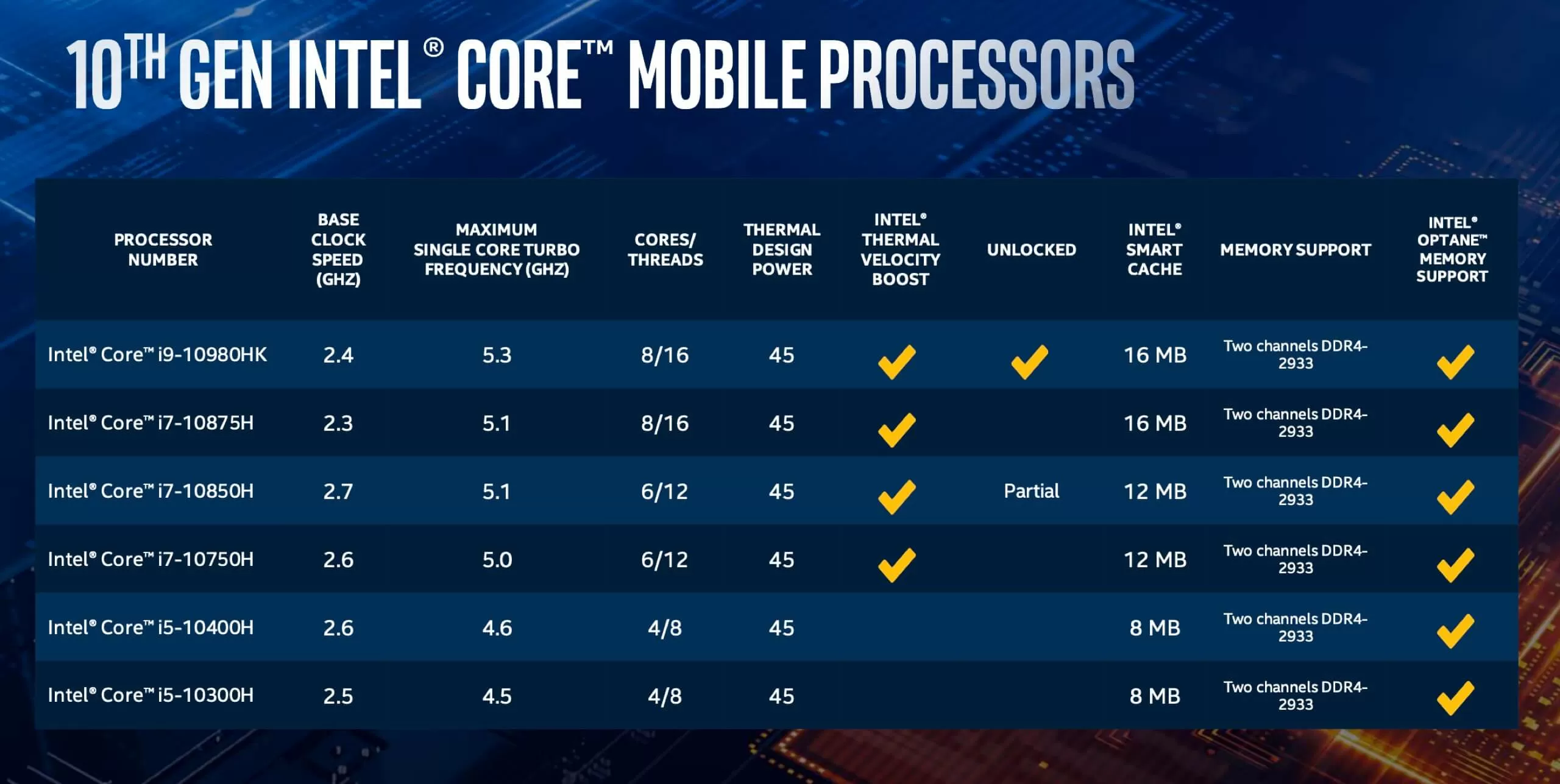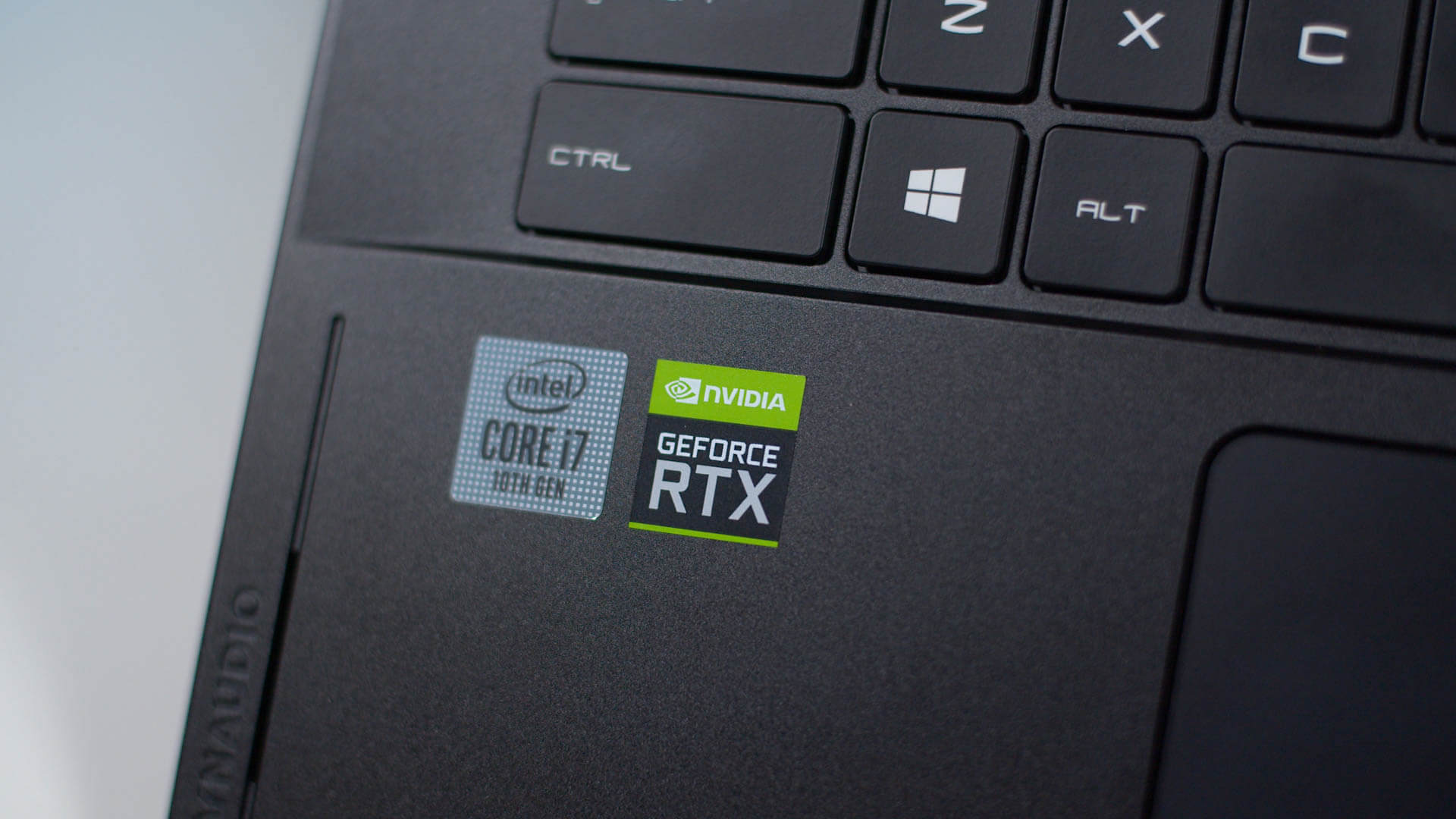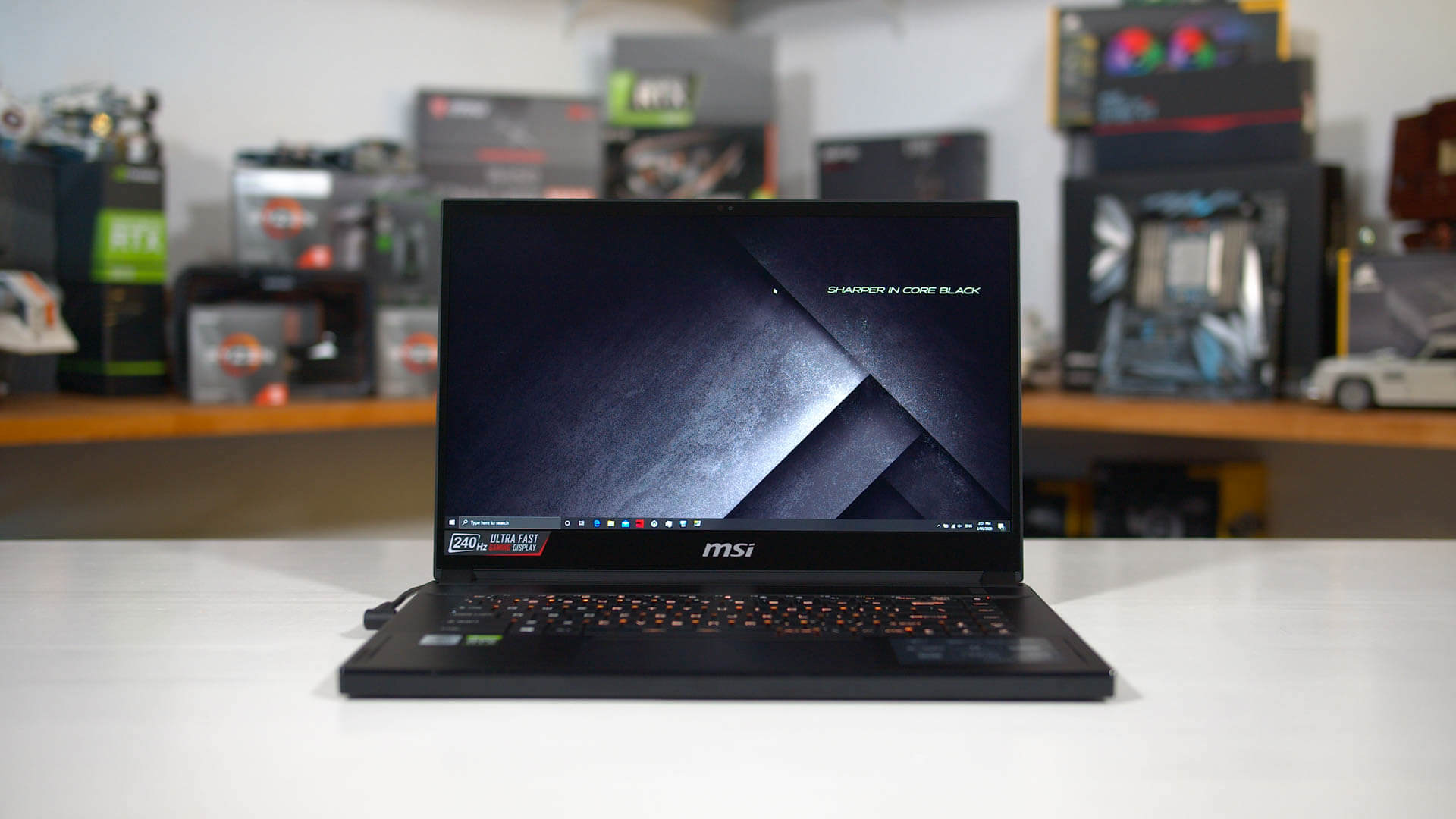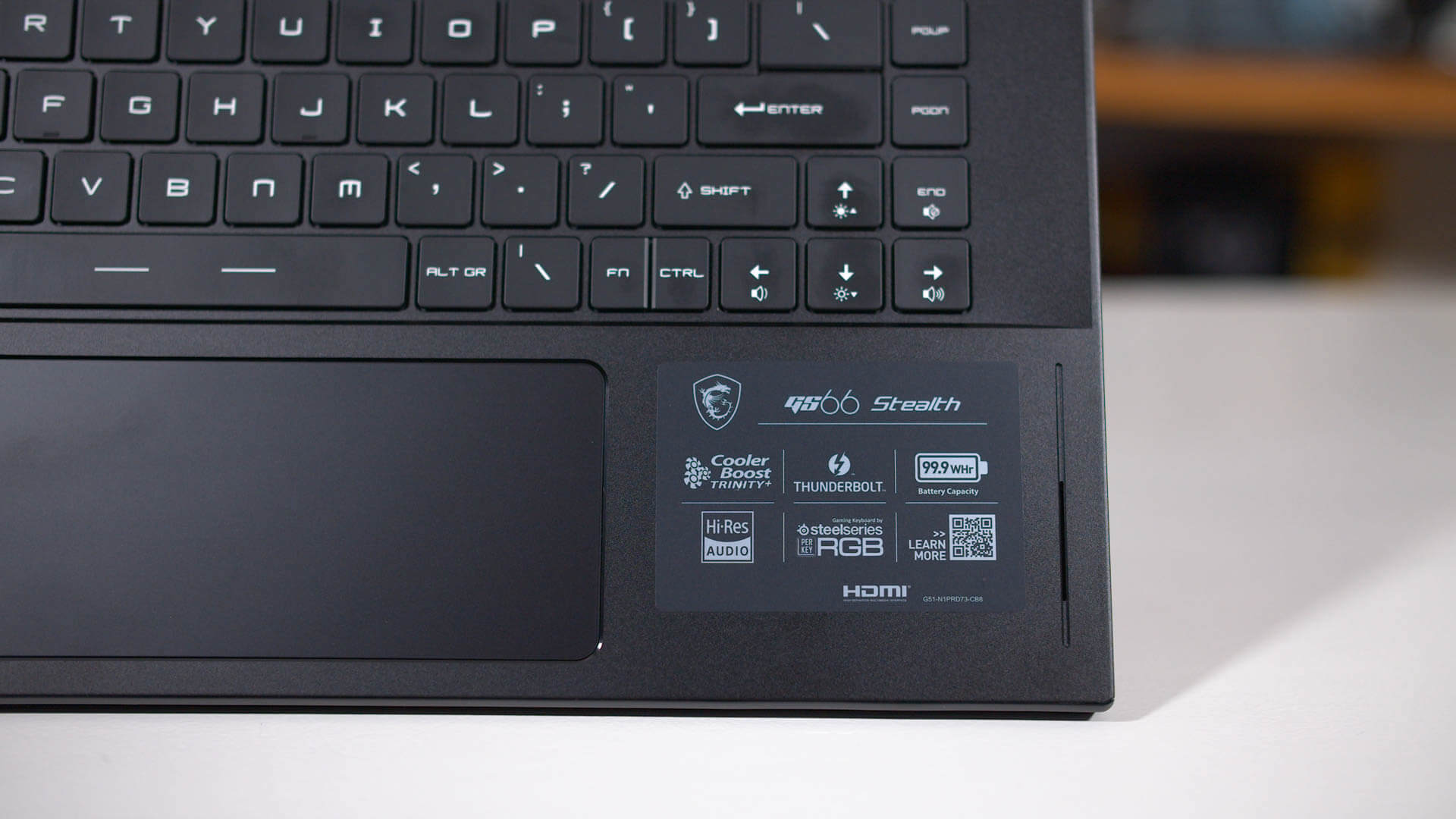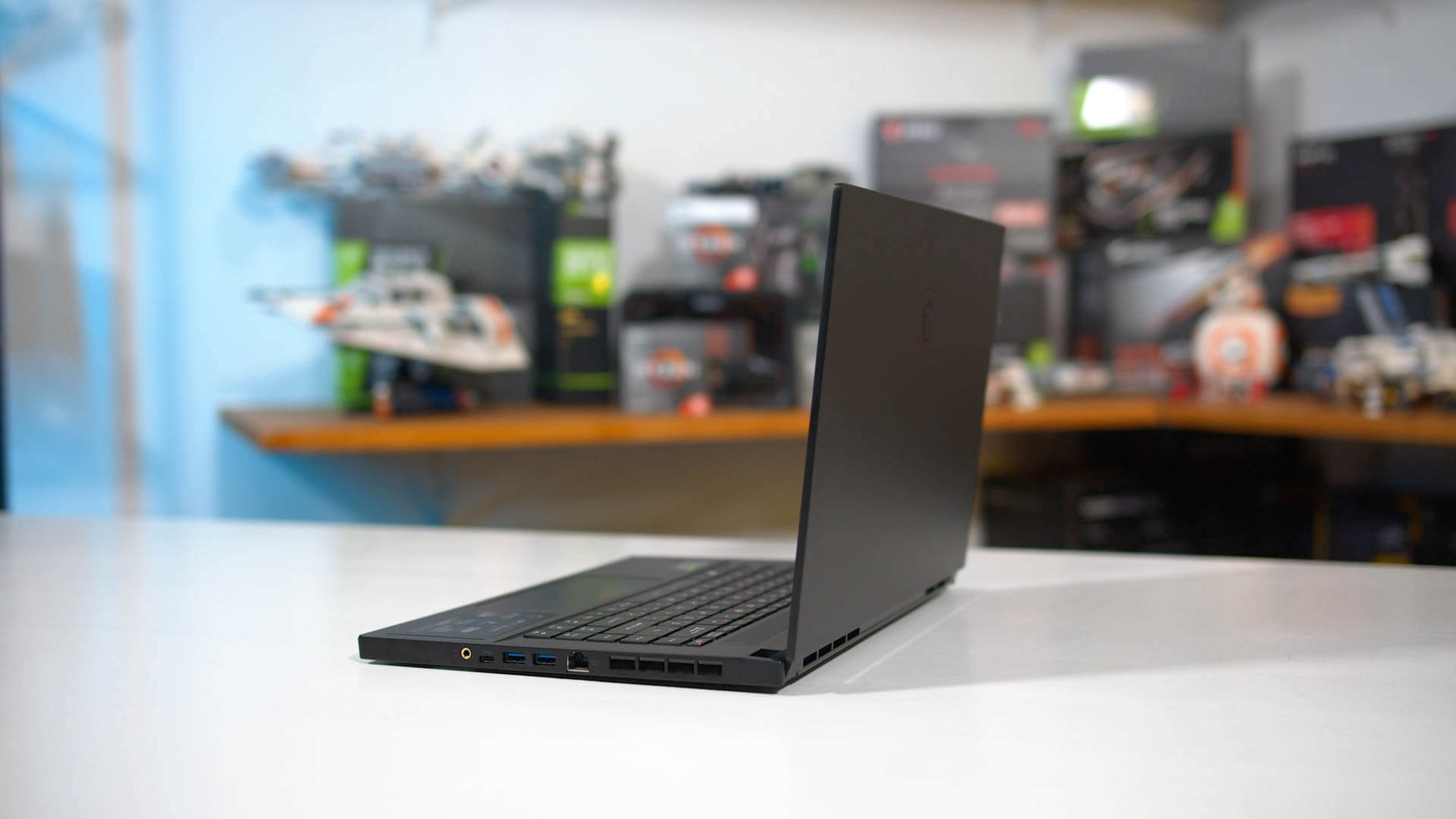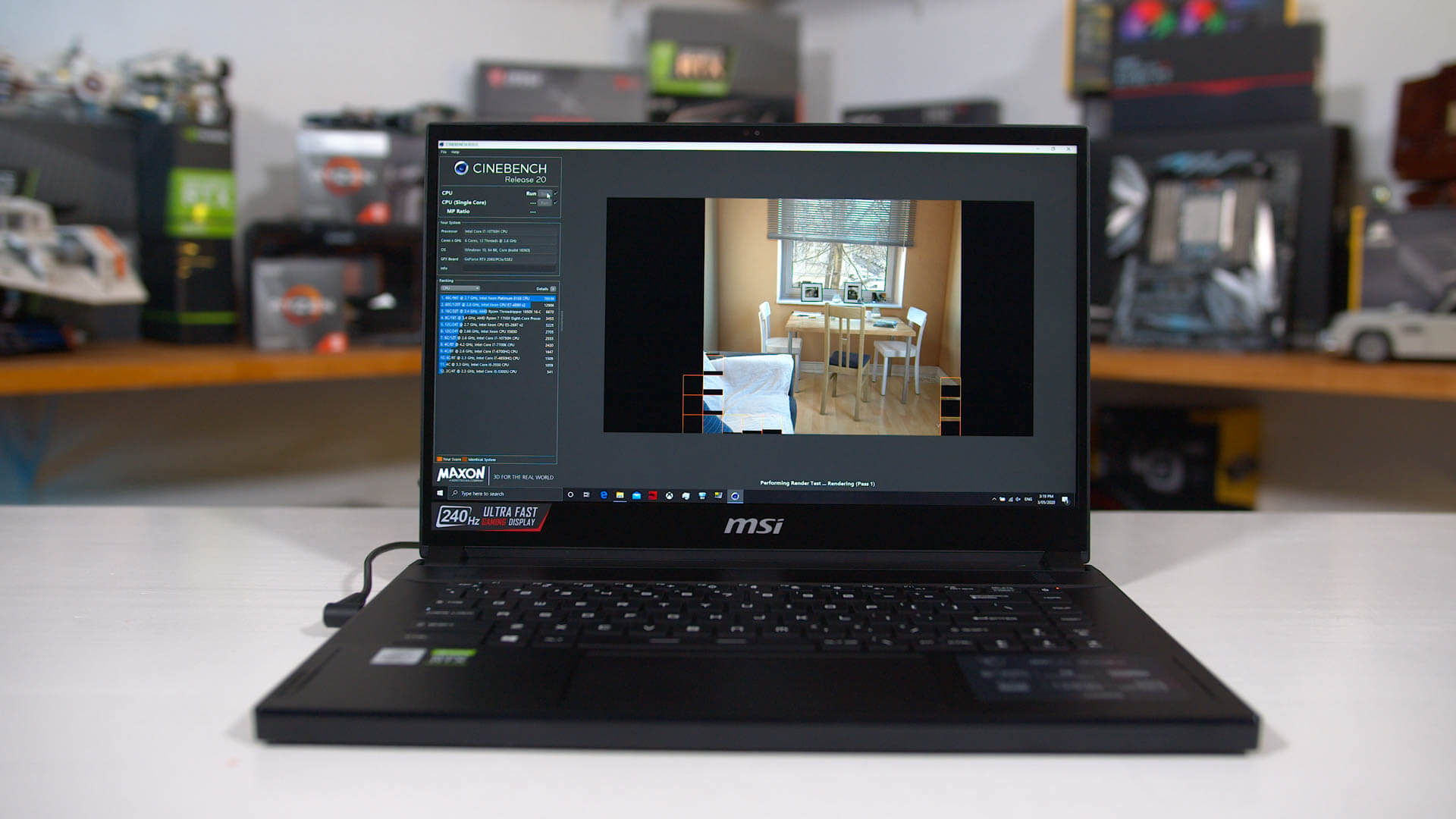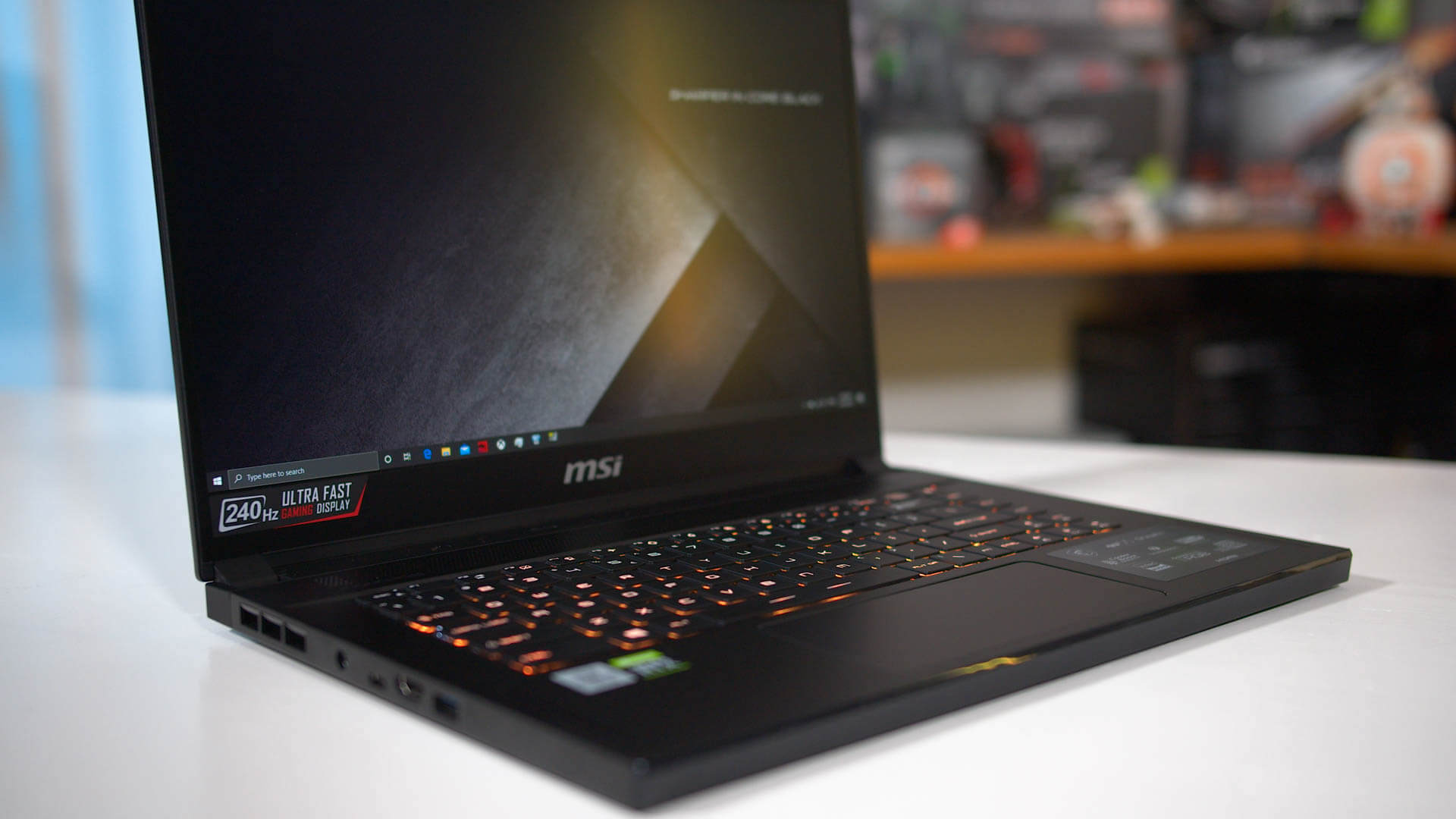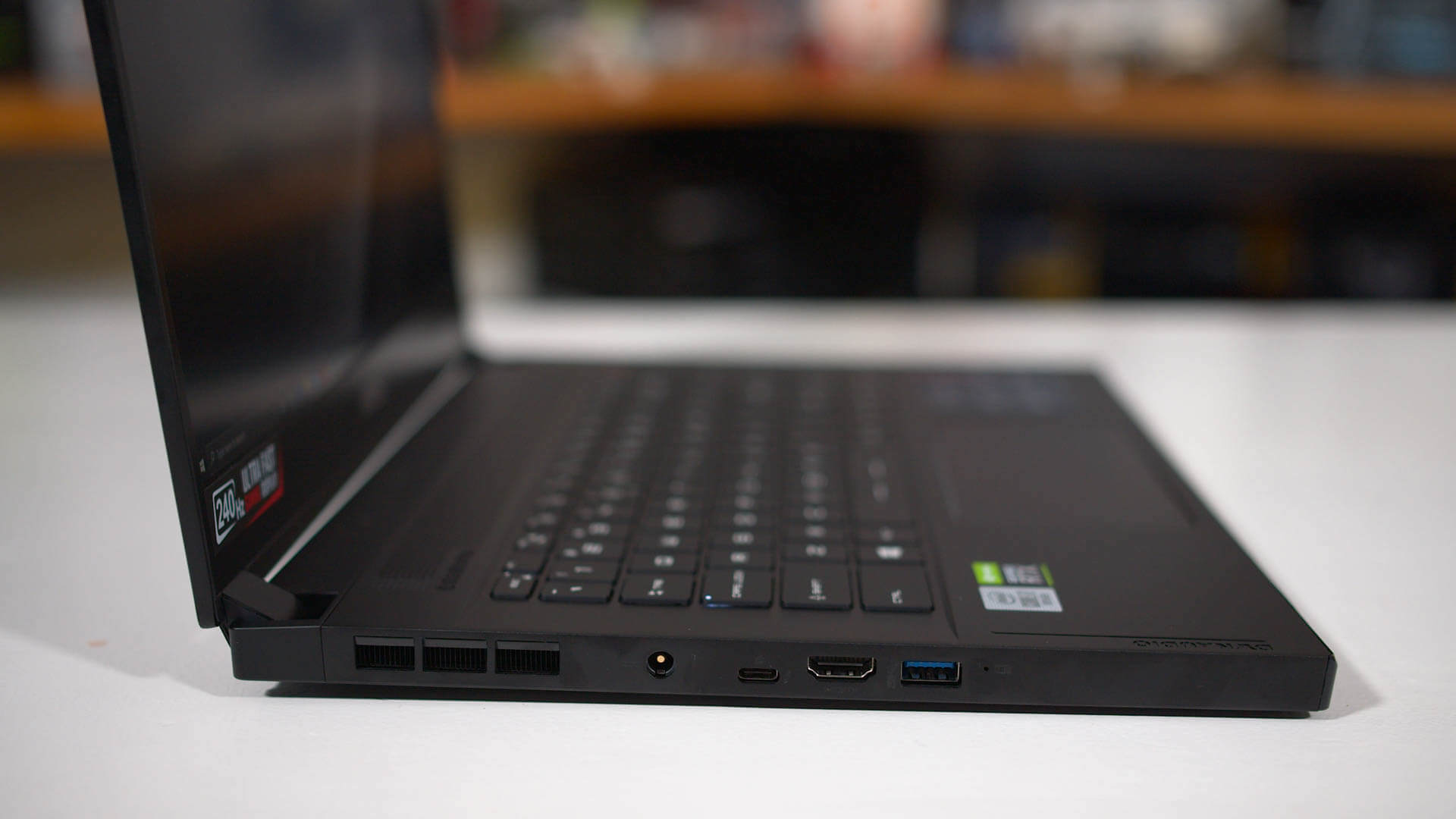Today we're taking a look at what's likely going to be the most popular of Intel's 10th generation H-series processors, the Core i7-10750H. This six-core processor is the successor to the very popular Core i7-8750H and Core i7-9750H, which are almost the universal choice for gaming laptops in the $1,000 to $1,800 range, and often take a lead role in productivity-focused 15-inch ultraportables as well.
This isn't the only Core i7 processor in Intel's Comet Lake line-up. There are a few other options including the new 8-core Core i7-10875H that we reviewed a few weeks ago, but judging by previous generations, anything above the 10750H will typically be restricted to premium options, while the Core i5s you see here - which amazingly are still quad cores - are destined for the most basic entry-level designs.
Going into this review though, there was one key question that I kept asking myself: is the Core i7-10750H actually any better than the 9750H or the 8750H that came before it? After all, they're all based on a similar Skylake-derivative architecture, built using the same 14nm technology, and all pack 6 cores within a default 45W power envelope. Without any major enhancements to the underlying technology, can the third iteration of this processor actually offer anything new?
No doubt, that's what we'll be finding out today with a comprehensive comparison of the 10750H to the 9750H and 8750H, along with a look at how it stacks up to AMD's newly minted competitor in this price range, the eight-core Ryzen 7 4800H. This review will be focused on productivity performance and then we'll tackle gaming in a separate article that we're preparing because there are a few interesting things going on with this latest generation of GPUs as well.
Let's briefly return to the spec chart to have a look at the Core i7-10750H and what we are getting. The basic specs are six cores and twelve threads, a 45W default TDP and 12 MB of L3 cache, same as the last two generations.
What has increased is memory support, now up to DDR4-2933, as well as clock speeds. The base remains at 2.6 GHz, however boost clocks have increased to 5.0 GHz for single-core Turbo with Thermal Velocity Boost, meaning we'll hit that frequency when the processor is running at below 65C. At higher temperatures, which most laptops run at, that frequency will drop by 200 MHz to sit at a 4.8 GHz Turbo. That's still a 7% increase on the 4.5 GHz Turbo the Core i7-9750H provided.
All-core turbos have also increased, now at 4.3 GHz, up from 4.0 GHz, however we believe this is influenced to some degree by Thermal Velocity Boost. In practice, we saw all-core turbos around the 4.1 to 4.2 GHz mark on most occasions, and sustained frequencies are naturally much lower than this, don't expect your 10750H CPU to just sit at 4.3 GHz on all cores all the time.
Test Setup: MSI GS66 Stealth
The test system for today's review is the MSI GS66 Stealth. This awesome laptop came packing the i7-10750H along with an RTX 2060 discrete GPU configured at 80W. There's also 16GB of dual-channel DDR4-2666 by default (which we swapped to DDR4-2933 to make the most of the CPU), a 512GB SSD, and a 1080p 240Hz display which is pretty nice.
We're huge fans of the MSI GS Stealth range. We think they look great and this is no exception. We won't review this laptop in full today, but we can tell you it's got a very nice chassis, great display, huge 99.9 Wh battery, and generally decent keyboard. This remains one of my favorite ultraportables from a design and functionality standpoint.
In terms of performance and power limits we're not getting top hardware capabilities given the slim and light design. The CPU can easily run at the default 45W limit, but tops out around 53W maximum with the Turbo modes. We've seen some thicker designs do up to 70W or more. The GPU is fine sitting at 80W though, no concerns there.
The CPU only topping out at 53W in the CoolerBoost mode is basically irrelevant though for this testing, as we run all CPUs using stock settings, so in this case for the Core i7-10750H that's a 45W long term PL1 power limit. The MSI GS66 was configured to use a huge 135W short term PL2 out of the box, however in practice we didn't see the CPU go over 70W very often. Still, this is a bit higher than the 56-60W we normally saw with 9750H systems.
The reason why we use stock settings and similar power limits is so we can compare processor performance at a given power level. Unlike with desktops, power consumption is crucial in laptops: more power hungry parts require larger coolers and therefore larger laptops. Comparing chips on an equivalent power level allows us to see how they would perform in an equivalent type of design. The more a CPU can do within a certain power limit, the more efficient it is, and the more you can do with a smaller, lighter design.
This is naturally one of the many challenges with laptop testing, it's quite hard to get apples-to-apples comparisons given the differences in configurations, so we try our best to put everything on an even playing field. The following performance charts contain averages from equivalent hardware configurations to provide a generalized look at performance from a given CPU. You can see here the full list of laptops we tested.
One last quick note about undervolting before we head to benchmark results. As we discussed in our Core i7-10875H review, more OEMs are locking down undervolting this generation, likely to prevent Plundervolt exploits. This was the case on the MSI GS66 Stealth. You may re-enable undervolting through the advanced options in MSI's BIOS though.
Benchmarks
Let's start with a look at Cinebench R20, a favorite for testing multi-threading although Intel likes to think it's pretty irrelevant. The Core i7-10750H isn't providing much of an improvement over the Core i7-9750H when we are looking at default 45W power limits. In the multi-thread test the new 10th-gen part is less than 2 percent faster – margin of error type of result – while in single-thread we're seeing a minor 3 percent performance increase.

It's not much better against the 8750H either: 4% faster in the multi-thread test, and 12% faster in the single-thread test thanks to a clock speed increase from a maximum of 4.1 GHz to 4.8-ish GHz. In both tests it's easily beaten by the higher tier Core i7-10875H with eight cores, but it's crushed as well by the Ryzen 7 4800H, which sits in a similar tier. Ryzen is not only over 60 percent faster in multi-thread, it also holds a 7% lead in single-core.

Not a lot is different in Cinebench R15, on this occasion the 10750H is actually slower on average in the multi-thread test compared to the 9750H, but it still holds a lead in single-thread. All of these margins are single-digit type stuff, so marginal change among them.

In a longer-term workload like Handbrake, we don't see much of an improvement comparing the 10750H to the 9750H. Ryzen holds an absolute lead over Intel's most popular Core i7, finishing this x265 transcode over 50% faster.

Blender delivers almost identical results to Handbrake when testing Intel's current and last generation six-core processors. You just aren't gaining anything substantial from this move. We mean, this isn't a surprise as it's basically the same silicon.

Code compilation was one of the best results we've seen for the 10750H. In this GCC compilation, which is a mixture of single and multi-threaded sections, the 10750H ended up 10 percent ahead of the 9750H a combination of higher boost and clock speeds in some situations. However it still easily loses to the Ryzen 7 4800H, which is faster for both multi and lightly threaded workloads in most cases.

Microsoft Excel was a workload where the 10750H ended up a little bit behind the 9750H on average out of the laptops that we've tested. A few variances in boost behaviour will be causing this. As Excel is mostly multi-threaded, performance falls behind both the 10875H and 4800H by double digit margins.


In PCMark 10's lighter workloads, the slight single-thread performance improvement does help out in some situations. We're looking at equivalent performance in the productivity test to the 9750H, although it remains around 10 percent behind both the 10875H and 4800H here. In the Essentials test, that clock speed bump helps deliver 3% better performance, but again, it falls behind Intel's faster 8-core model and the new Ryzen 7 from AMD.

7-Zip shows performance to be very similar between the 10750H, 9750H and 8750H, not much in it here. As this test is multi-threaded, performance is a tad behind Intel's 8-core 10875H, up to 25% slower, and it's also behind Ryzen 7 4800H.

MATLAB shows no real performance gain for the 10750H over the 9750H, and similar to other tests we've just been looking at, it's slower than 8 core CPU options by a double digit margin. Given the Ryzen 7 results, six-cores at this price point is looking a bit dated.

One of the more significant victories for the 10750H is in Acrobat PDF exporting, which is a fully single threaded workload. With clock speeds 7% higher with the 10750H over the 9750H, and both CPUs being able to run at these clocks within the power limit on a single core, the 10750H was 7% faster in this test. This allows it to claim one of the only performance leads over the Ryzen 7 4800H that I saw.

In AES performance, again we're not seeing much difference between the 9750H and 10750H, or even to the 10875H. That's because this is a hardware accelerated function and it doesn't seem like there's been any gains here at all, probably as the architecture is the same. Cryptography is another area where Ryzen is much faster in laptops, 35% faster when multi-threaded.

Photoshop is one of the rare workloads where the needle shifted marginally in favor of the new 10th-gen CPU, in Puget's benchmark we're seeing 9% higher performance with the same RTX 2060 GPU. This allowed it to match the Ryzen 7 4800H configuration with a lower tier GTX 1660 Ti, which on face value is reasonable until you realize it's outperformed by a cheaper Ryzen configuration.

DaVinci Resolve Studio using the Puget workload is another rare instance where our Core i7-10750H configuration was slower than our Core i7-9750H system with the same RTX 2060 GPU. It wasn't massively slower, but it was slower overall which is an odd result. Nevertheless, both CPU options fell behind the Ryzen 7 4800H which is typical of video encoding applications.


And finally we get to our set of Premiere workloads. For exporting, there's no real difference between the 10750H and 9750H when paired with the same GPU, you're looking at margin of error type stuff using the latest Premiere beta version which adds hardware acceleration for Nvidia GPUs. Like with DaVinci Resolve, the Ryzen 7 4800H is a better choice here as it can chew through the CPU limited parts of the encode faster.

Live Playback performance is also quite similar between most of these options, the Ryzen 7 4800H is marginally ahead but not by much. If you're like us and stick to purely software encoding for maximum quality, again there's just not much to be gained between the 10750H and 9750H, we saw a 6% improvement here which is actually on the higher side, but with 25% lower performance than a Ryzen 7 4800H configuration it just doesn't end up being that impressive overall.

And finally we have the Warp Stabilizer effect, which is lightly threaded. No performance gains over the Core i7-9750H, and like we've been talking about in seemingly every single benchmark throughout this video, it just can't keep up with the Ryzen 7 4800H in this test. When running a single warp stabilizer instance, the 4800H was 22% faster.
What We Learned
The main reason why we aren't getting better performance with this generation is the simple fact that Intel has not changed the architecture or manufacturing tech for years. When there are no IPC gains to be had, and minimal improvements to efficiency, you're stuck with virtually zero performance gains in a power limited form factor like a laptop. And this is most obvious when viewing clock speeds.
In Cinebench R20, the 10750H performs almost exactly like a Core i7-9750H, which itself performs like a Core i7-8750H. Those two last generation processors clocked around 3.1 GHz long term across six cores within the 45W power limit. The 10750H ends up clocking around 3.2 GHz long term, so a 100 MHz increase in this instance. With that equating to a 3% clock speed gain, it's no surprise we often saw multi-core performance improvements in the 2-3 percent range, which is negligible.

Looking at the overall performance summary, in the best case scenario we're seeing a 10% gain in lightly or single-threaded apps, but this does vary depending on the test and for the most part we'd say the processors are about a match. And this carries through to looking at limited 8750H testing. Multi-core performance has only improved by a few percent in Cinebench, the major gains have come from raising the clock speed limit for single-core.

Compared to Intel's other Core i7 CPU which offers 8 cores, the Core i7-10875H, the 10750H is universally slower as expected. At times it's around 10 percent slower in single-thread workloads, but can be up around 20 to 25 percent slower in multi-thread. Given most higher-end 10750H laptops do have a more expensive 10875H option or even something with the Core i9-10980HK, this is the sort of performance you're missing out on.

And then comparing the Core i7-10750H to the Ryzen 7 4800H, it's a bit of a bloodbath for the Intel processor. With both CPUs limited to 45W, Ryzen is offering better multicore performance and better single-core performance in almost every instance. If you have productivity workloads that are mostly multi-core, the performance benefit Ryzen provides with 8 Zen 2 cores on 7nm is very significant.

Our overall thoughts on the Core i7-10750H can be summarized neatly in a single word: unimpressive. Intel is offering the same performance as the last-generation i7-9750H with a few very small improvements, which in effect is the same performance as the Core i7-8750H from two generations ago. For productivity performance, there is no reason to consider an upgrade.
The only way you'll be getting more performance with a new Intel chip in this segment is if you buy a laptop that allows to run the CPU with a higher power limit. If you had a 45W laptop and can upgrade to something with enough cooling to allow 60W or 70W, you'll be facing a 15 to 20 percent improvement. But this isn't an actual performance gain from the 10th-gen CPU, it's a performance gain from having a laptop with a better cooler.
Because Intel has kept offering two-year-old performance at the same price point, AMD has been able to swoop in and shake up the laptop market with a much faster processor in this category. The Ryzen 7 4800H is, for the most part, double digit percentages faster with the same power usage and this lead can be 50% or higher when fed a workload that can utilize all of its 8 cores.
This conversation can get a bit muddied when you factor in all the power limits and configurations that OEMs offer. But given we've seen Intel still failing to beat AMD's 45W processor with a 90W 8-core option.
The apparent reality this generation is that any laptop using a Core i7-10750H could most likely be faster and better for productivity or creator workloads had it used a Ryzen 7 4800H instead. Even with this MSI GS66 Stealth, and we'll be honest it's a very nice laptop, yet it's missing out on the 50% productivity performance bump from Ryzen.
Or to look at it another way, in the portable H-series category, the MSI GS66 is easily beaten for productivity by the smaller and more affordable Asus Zephyrus G14. The G14 is $300 cheaper, a 14-inch design instead of 15-inches and weighs 500 grams less. That's the real-world benefit AMD is providing right now, albeit in a limited number of systems.
